Maurizio Napolitano

Technologist for FBK’s Digital Society center. He coordinates the Digital Commons Lab unit where he works on digital commons including open data and openstreetmap.
The work he does with his research group is the development of policies, actions, and software related to the world of given data.
He teaches Geospatial Analysis at the Master of Science in Data Science program at the University of Trento.
He has taught several courses aimed at journalists, academics, public administrators and innovators on socio-technical topics related to data analysis, data visualization, geospatial analysis, open data and communication. He has been a speaker at numerous popular events, including Republic-Next, World Wide Rome – Open Science, TEDxTrento, TEDxSiena, TEDxPotenza, and City Vision.
Spotlight's articles
-
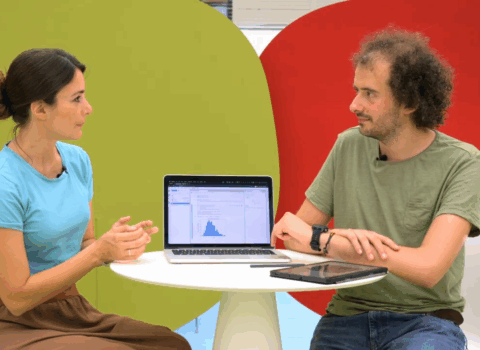 May 28, 2025Learning about Artificial IntelligenceWith the event “Artificial Intelligence at Martini: Educational Materials in Action,” the New Generation AI project comes to a close. The initiative lays the groundwork for building a community of educational practices among upper secondary school teachers involved in the program. Its aim: to foster a critical and informed interaction with new technologies.
May 28, 2025Learning about Artificial IntelligenceWith the event “Artificial Intelligence at Martini: Educational Materials in Action,” the New Generation AI project comes to a close. The initiative lays the groundwork for building a community of educational practices among upper secondary school teachers involved in the program. Its aim: to foster a critical and informed interaction with new technologies. -
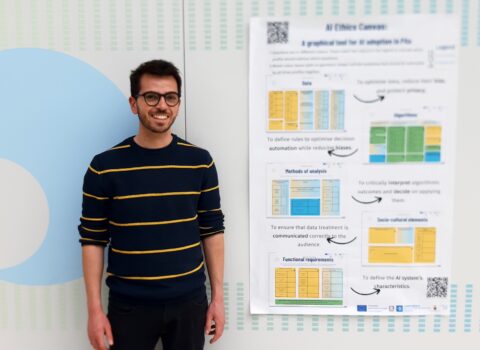 April 11, 2025A guide for ethical AI adoption in public administrationsHow can we build an ethical artificial intelligence (AI)? AI Ethics Canvas is a practical and interdisciplinary instrument based on research conducted by FBK’s Digital Common Lab within the AIxPA project, led by the Autonomous Province of Trento with FBK’s collaboration. Riccardo Nanni was among the main players in building the canvas. This tool presents a set of questions to which a multidisciplinary team needs to answer to devise an AI-driven service for public administrations (PAs). The AI Ethics Canvas helps to balance functionaries’ duties and obligations with citizens’ needs by providing a clear method to address these challenges. It is available for everyone to download.
April 11, 2025A guide for ethical AI adoption in public administrationsHow can we build an ethical artificial intelligence (AI)? AI Ethics Canvas is a practical and interdisciplinary instrument based on research conducted by FBK’s Digital Common Lab within the AIxPA project, led by the Autonomous Province of Trento with FBK’s collaboration. Riccardo Nanni was among the main players in building the canvas. This tool presents a set of questions to which a multidisciplinary team needs to answer to devise an AI-driven service for public administrations (PAs). The AI Ethics Canvas helps to balance functionaries’ duties and obligations with citizens’ needs by providing a clear method to address these challenges. It is available for everyone to download. -
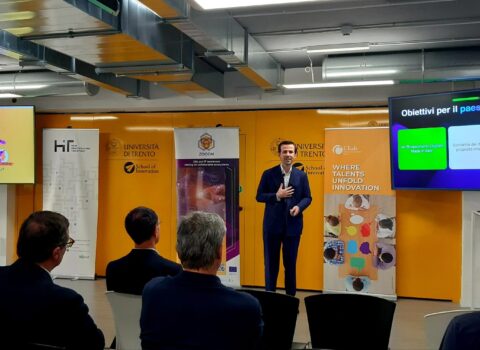 June 12, 2024OPEN Trento x3What is meant by open artificial intelligence? Openness in AI not only has to do with the availability of software, but also with key issues such as transparency, reusability and sustainability of systems, while respecting essential ethical constraints imposed by standards.
June 12, 2024OPEN Trento x3What is meant by open artificial intelligence? Openness in AI not only has to do with the availability of software, but also with key issues such as transparency, reusability and sustainability of systems, while respecting essential ethical constraints imposed by standards. -
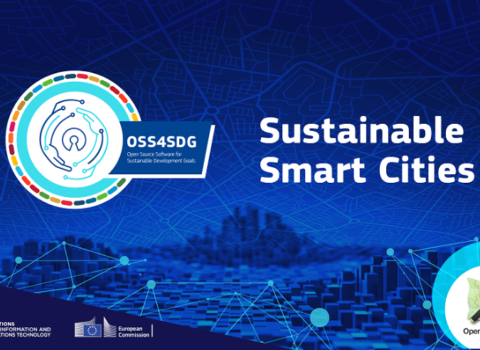 December 13, 2022Francesco Weikmann wins a prize promoted by the United Nations and the European CommissionThe software developed, which enables the involvement of citizens to improve data collection on urban cycling, came in second at the Open Source Software for Sustainable Development Goals – Sustainable Cities & Communities (OSS4SDG) competition organized by the EU and the UN
December 13, 2022Francesco Weikmann wins a prize promoted by the United Nations and the European CommissionThe software developed, which enables the involvement of citizens to improve data collection on urban cycling, came in second at the Open Source Software for Sustainable Development Goals – Sustainable Cities & Communities (OSS4SDG) competition organized by the EU and the UN -
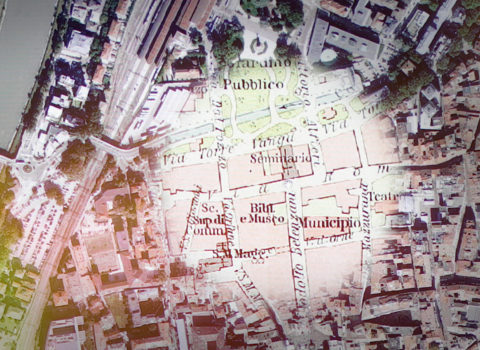 June 15, 2021More maps for everyoneThe "Trento Time Travel Maps" project of the FBK Digital Society Center provides citizens with a series of urban maps to understand how the city has changed from the 19th century to today
June 15, 2021More maps for everyoneThe "Trento Time Travel Maps" project of the FBK Digital Society Center provides citizens with a series of urban maps to understand how the city has changed from the 19th century to today